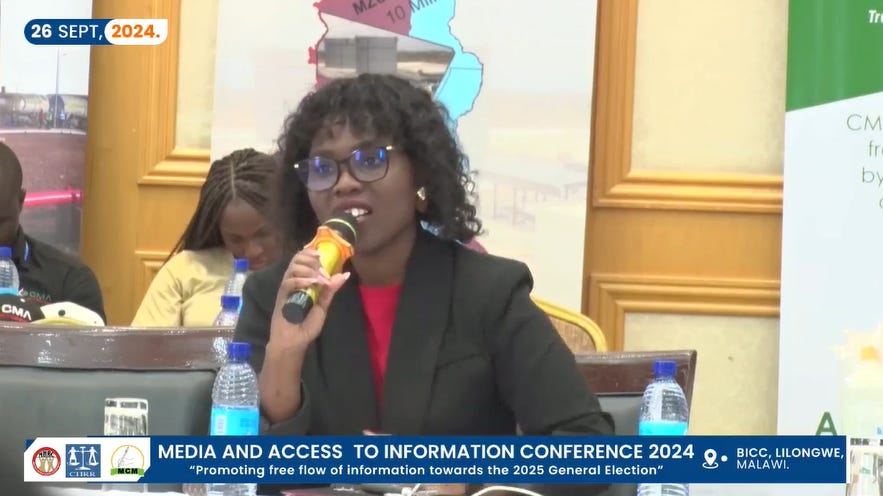Malawi Rights Commissioner Urges Greater Information Access Ahead of 2025 Elections
Ndanga highlighted ongoing challenges, including attacks on journalists during past elections and restrictions on press coverage at political events.
LILONGWE, Malawi— A top human rights official in Malawi on Thursday called for increased access to information and media freedom as the country approaches its 2025 general elections, highlighting ongoing challenges and urging stakeholders to prioritize transparency, writes Martha Phonera.
Speaking at the inaugural Annual Media and Access to Information Conference, Malawi Human Rights Commission Commissioner Teresa Ndanga emphasized the critical role of information access in ensuring transparent and fair elections.
"As Malawi approaches the 2025 general elections, the significance of media freedom and access to information cannot be overstated," Ndanga said. "These pillars of democracy are not just rights, they are lifelines."
The two-day conference, held at the Bingu International Convention Centre in Lilongwe, coincides with the International Day of Universal Access to Information. It focuses on "Promoting Free Flow of Information towards the 2025 General Elections."
Ndanga highlighted ongoing challenges, including attacks on journalists during past elections and restrictions on press coverage at political events.
She called for amendments to laws that limit press freedom and access to information, including sections of the Penal Code and the Electronic Transactions and Cyber Security Act.
"We must confront the reality that the journey toward true freedom of information is fraught with challenges," Ndanga stated, noting recent attempts to undermine press freedom.
The commissioner praised the Malawi Electoral Commission (MEC) for its consistent provision of information but stressed the need for all stakeholders to be more transparent.
She urged political parties to disclose funding information as required by law.
"Transparency in funding ensures that political parties remain focused on serving the best interests of Malawians, rather than catering to special interests," Ndanga said.
The speech also addressed the use of national identity cards in the electoral process, calling for dialogue among the MEC, the National Registration Bureau, and political parties to ensure voter trust and prevent disenfranchisement.
Ndanga emphasized the need for diverse information dissemination methods, especially in areas with limited access to mainstream media. She also called for investment in digital literacy and journalist safety.
"We need to invest in capacity building for media practitioners to equip them with the skills to navigate the complex landscape of election reporting, fact-checking, and investigative journalism," she added.
The conference, attended by government officials, media representatives, and civil society organizations, aims to foster dialogue and action on information access as Malawi prepares for its next major democratic exercise.
Ndanga concluded by quoting African Union election guidelines, stating, "No democratic government can survive without accountability, and the basic postulate of accountability is that people should have information about the functioning of government."
Chairperson for National Advocacy Platform, Benedicto Kondowe, echoed Ndanga's sentiments, pointing out that the lack of clear regulations and enforcement guidelines hinders transparency in political parties' financial statements.
"Lack of transparency might lead to fraud, and parties being manipulated by their funders without putting Malawians in the best interest if voted into power," Kondowe said.
The event marks a significant step in Malawi's preparations for the 2025 elections, with stakeholders across sectors coming together to address the crucial role of information access in the democratic process.



